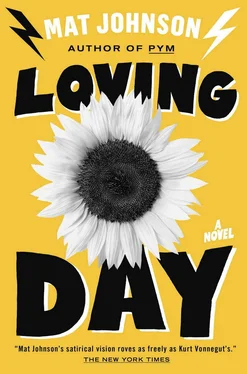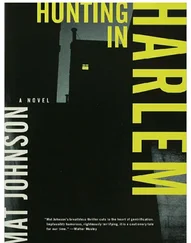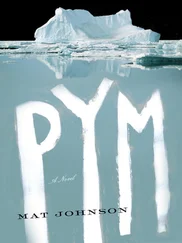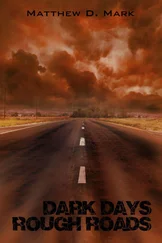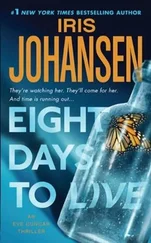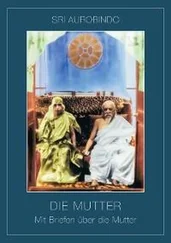“Without accepting all of ourselves, we can never be ourself,” Sunita declares. And then she repeats the sentence of import over again, slower, stopping to write on the board. I haven’t been closely following her actual lecture, the entire line of discussion is too disturbing to take in big chunks. Fortunately, I don’t really need to because Sun’s done the same thing with all her key sentences and they’re all written up there. Love yourself for who you are, not who you wish you were . Then there’s All of your history is within you . My favorite is You are half of nothing, for you are whole , because ain’t no one in this room half of anything. These people would kill to be half. Nobody in this room has had an ancestor who was “half” since Abraham Lincoln was president. Hell, the guy next to me is making do clinging to one drop and bragging about it. This mixed race stuff is heresy. It’s the opposite of what I’ve been taught since a child: if you have any black in you, you’re black — very simple, very American. It’s worked fine since slavery but she treats the dogma like doggerel.
For two hours, I’m nodding my head and taking notes, mostly listing how to get Loudin done in six months, the order of what needs to be fixed, and estimates as to what each repair will cost. They don’t have to be good repairs, just enough to get the appraisal higher for after the fire when the insurance pays out. When I reach an enormous, impossible sum, I look up, surprised. Sun sees this and she actually smiles, mistaking my revelation as a response to something in her lecture she is calling “tri-racial isolates.”
Sun says, “We’re writing our parental histories?” and I look at the others and they’ve got they’re notebooks open and are jotting, so I ape them.
I start with my mom. Pauline Duffy, née Skaggs, who came from Chicago in the late sixties, running from an alcoholic father who only sobered up to preach on Sundays and to push a mop at the post office on weekday mornings. While he was drunk, he did some things too horrific to specify, to her, at night, and she had a hard time overcoming those memories, which is partly why my mom smoked a lot, which cut her time on earth to deal with said trauma. The name Skaggs came from his father, who showed up in Chicago running away from certain lynching in Acadia Parish, Louisiana, leaving behind the corpse of a drunken Cajun who overestimated his white privilege. I can’t trace them all the way back to Africa, but I do know that his grandfather came from Haiti in the beginning of the nineteenth century — as to why he would chose to go from free Haiti to the Deep South before the end of U.S. slavery, I don’t know. I do know that creoles can be hardheaded, so maybe that’s reason enough. The rest of the family, my grandmother’s side, came from Tennessee, where they worked for the same family they’d been enslaved by for another twenty years after the South lost its war. When my mom left my dad, money was tight. Bills went unpaid, and utilities routinely went out. Light’s out. Water’s out. Heat’s out. When it was the water bill, we’d line buckets in the backyard to have rainwater to flush the toilets with. Sometimes it was the phone, which meant that when we got home my mom would spend all night talking to me, which was lovely. Sometimes it was the gas, which wasn’t bad because we only used it to cook and that meant cereal for dinner. But usually it was the electric. We’d get back from work and school and it would be dark and stay dark. And my mom would get candles from the dresser drawer and ignite a cave of visibility for us. She was a skinny woman, skeletal in the shadows, but they were soft bones to me. Mornings there was no heat and too much cold, she would come downstairs and turn on the oven to take the chill out, leave its door open so you could see the hot air rippling as it escaped. And we would stay there at the counter, hands over the opening, Mom taking pauses to light her menthols on the burner. “Love keeps us warm,” she said to me once, which was not literally true or particularly poetic but is lodged forever in my mind.
I tell this story to the group. I’m the first one to read out loud, too, and I volunteered. I stand up in front of the room and everything. And part of it is that just thinking about that time brought it back for me and I miss my mom. And I know that saying it out loud, sharing it, will amplify the feelings I just remembered. And it does. I can see the oval burns from the curling iron, on my mom’s neck, and the smile that got so big you could see her missing teeth in the back. And I remember the lines of her gaunt face, how they raced down to her sharp cleft chin, how her neck was long and thin and she tried to wear high collars and shoulder pads to obscure that. I remember the smell of that horrible placenta treatment she used to put in her hair, sealed in a glass tube and broken with great care directly onto her roots. I remember the horror of visiting her in the hospital, skinnier every time. I remember that she told me to stop coming, that she didn’t want me to see her like that. I remember, “I can’t get out of this, but you can, so go.” The relief of this reprieve would only be matched by the guilt of accepting it forever after. I tell them all this, telling far more than what I wrote down. There is a petty me in there that wants Sunita Habersham to know that I had been loved once. That I knew how to love once as well. But even that smallness is smothered under the details remembered. When I finish, I’m thinking that I actually like this Mulattopia, this campground of self-indulgence. That it isn’t all bad, being forced to say: This is me, this is me, this is me .
“Okay, that was great. Do you want to continue?” Sunita Habersham asks me. She’s wearing a Nehru collar today, on a knee-length, pale blue cotton shirt that’s proudly wrinkled and wants everyone to know it doesn’t go in for that ironing bullshit.
“That’s all. Thank you. Thanks for listening,” I tell her, and I go to sit down. But there is a hand on my shoulder, so I stop, look back at her.
“No, that’s not all. You have two parents. They were an interracial couple. We are all here, because at some point, there was an interracial couple that conceived us. We all share that legacy. That’s not something to be ashamed of. That’s not even something to be proud of. It’s just our reality, and we can’t run from that and only claim one side. As long as we do, we’ll be haunted by what we’re denying. Your surname is Duffy,” Sun tells me. And I think, Yes, yes it is. When I don’t know what to say, Sun continues, “What about your father’s side of the family?”
“They’re Irish.” I tell her. When this doesn’t seem to satisfy her, I continue. “My dad just passed away. Very recently.” This is a truth that’s also meant to stop the conversation. Yet fails too.
“Where in Ireland are they from?” Sun asks, but it sounds like a demand.
“What?”
“How long have they been in America?”
“I don’t know. When did they run out of potatoes?” I ask, utterly sincere.
“What were their occupations?” She keeps going.
“All I know about them is that they were really pasty,” I tell her. Sun doesn’t laugh. No one does, except One Drop, harder than the joke pushed him. Everyone just stares at him. Me too. He keeps going. I’m smiling, but I want him to stop. This is my family. This is my family, pasty but still mine. When he finally ends with, “Nice one, Holmes!” he holds a hand to slap and I do but I’d rather smack his face.
“Warren, you knew your father, correct? So give us something about him before you sit down. Something as detailed as your mother’s anecdote.”
The first thing I think of is that goddamn house. That rotting mansion. But I don’t really think of that as my father, only as his European legacy, his aspiration for himself and for me if he really did imagine that I’d come back to inhabit it. So then I think about his car, and that’s what I tell them. Craig Duffy drove a 1968 Volkswagen Beetle, black, that he bought in 1972 and never let die. I loved that car. It had such a distinctive lawn mower purr; when he’d pick me up from school I’d know he was coming from a block away. It used to break down all the time, but the thing had such simple mechanics. My dad would get used parts sent straight to the house, fix it out on the street, car radio blasting classical music in the middle of the hood to drown out the sounds of other cars blaring hip-hop as they drove by, which is hilarious now that it’s not actively horrifying me.
Читать дальше
